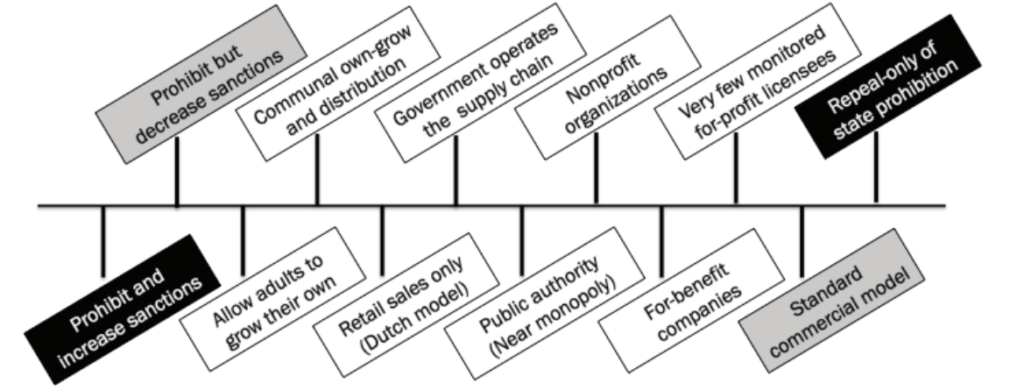
I have written in the past that cannabis companies of all stripes (whether involved in marijuana or hemp) that are in fundraising mode need to know when they are offering securities for many different compliance-related reasons, the biggest of which is to avoid jail time for committing securities fraud.
According to the U.S. Securities Act of 1933:
The term “security” means any note, stock, …security future, security-based swap, bond, …evidence of indebtedness, … participation in any profit-sharing agreement, … transferable share, investment contract, … fractional undivided interest in oil, gas, or other mineral rights … option, or privilege on any security, … or group or index of securities … or any certificate of interest or participation in … or warrant or right to subscribe to or purchase, any of the foregoing.
In layperson’s terms, a “security” is any type of financial interest in any business venture for any amount over any period of time, even if that business is not a formally registered company. The security could be an offer or sale of a straight equity ownership percentage. It could be a simple loan or debt. It could be an option, warrant for future ownership, or a profit sharing arrangement.
Sometimes companies that have issued debt or equity securities contact me, and the filing deadline to let securities regulators know has passed. Generally, these notice filing deadlines are 15-30 days after the date of the company’s first sale of securities. It is easy for executives to lose sight of these fundraising deadlines when they are busy running the business and dealing with investors and questions from their financial advisors and securities lawyers.
The Securities Exchange Commission (SEC) and every U.S. state’s securities commission or securities division care about protecting investors in both private and public companies, and they take their missions very seriously. These notice filings are one of the key components to these securities regulators fulfilling their missions.
Generally companies that hire me after missing their filing deadline are in some kind of mild or major panic, especially after I explain to them that I need to carefully review all of their investment offering documents so I can determine how many securities regulators they need to notify. This is a fact-specific analysis where I need to generally look at the location of each investor (international, domestic (state by state)), the amount invested by each investor, the method the company used to solicit investment, the total amount of the offering, and whether the investor self-certified as an accredited investor.
Most companies engaged in securities offerings need to notify regulators by filing a notice form. State regulators have their own sets of forms, and the SEC has another form, generally referred to as Form D. If a company is engaged in a limited offering of only a handful of investors in one or two states, then it may make sense to only notify state regulators. If the offering involves numerous investors spread across several states, then generally filing Form D will be the most efficient way to complete the offering. Some state filings require the payment of a fee up to several hundred dollars, while Form D does not require any payment.
In some instances, the offering may qualify for state exemptions so that the offering company does not even need to provide a notice filing to state securities regulators. This happens infrequently, but it can save a company thousands of dollars in legal and filing fees, even compared to a streamlined Regulation D (Reg D) offering involving a Form D filing.
But what if you miss a filing deadline? It is always better to file late with securities regulators than to never file at all, even if you miss a filing deadline by many months. In reality, the number of companies who miss filing deadlines is more than just a few, and we have no reliable way to track this data. This is because there are so many offerings going on that unless something goes wrong with the offering and an investor complains to securities regulators, whether the securities regulators are aware of the offering has no bearing on the ongoing company-investor relationship.
So don’t miss a filing deadline if you can help it. If you’ve already missed the deadline, then submit your offering notice as soon as you realize your mistake. If you’re inclined to let it slide, then keep in mind that if you have investor troubles down the road, anything out of place in your securities offering materials (including the presence or lack of regulatory filings) will weigh against you in the balance.
For more reading, check out:
- Cannabis Fundraising: Seven Key Takeaways from the SEC’s New Accredited Investor Rules
- Cannabis Securities Litigation 101: Who Can Be Liable for Oregon Securities Fraud?
- Raising Cannabis Funds and Staying Out of Jail: Asking Yourself the Right Questions
- Did You Just Issue Cannabis Securities? Top 10 “Go to Jail” Scenarios
- Cannabis Startups 101: Securities Compliance
- Oregon Cannabis Securities: Raising Money Right
- Cannabis Crowdfunding is Here
- Utah Cannabis Investment Fraud: Know Your Securities Laws
- Cannabis Securities Litigation: Don’t Expect to Put One Past the SEC
- Ask a Pot Lawyer: Can I Invest in Weed?
The post Do I Need to File Form D in Cannabis Fundraising? What if I Missed the Filing Deadline? appeared first on Harris Bricken.
from Canna Law Blog – Harris Bricken https://ift.tt/3jLUKwI
via IFTTT










